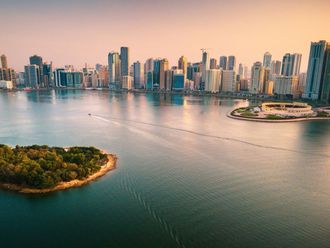Abu Dhabi: The Emirates Centre for Strategic Studies and Research (ESCCR) in Abu Dhabi on Tuesday ended its 18th annual energy conference, a two-day conference entitled “Technology and the Future of Energy” which looked at some of the technological development in the energy industry and the viability of renewable energy technologies.
Electricity demand in the UAE is expected to double from 2010 to 2020, said Khalid Abdullah Al Sallal, Professor of Sustainable Design and Building Technology at UAE University, who spoke at the conference.
“In 2007 in Abu Dhabi, the electricity peak load was about 6,000 megawatts. That’s estimated to have increased 15 to 20 per cent every year, so in 2015 this will be at 16 gigawatts,” Al Sallal said.
He said that commercial buildings make up 46 per cent of the electricity consumption while residential buildings make up 34 per cent. Al Sallal said that while this is like any other part of the world where buildings consume most energy and are the largest emitters of carbon dioxide, some action needs to be done to improve efficiency of buildings.
“So instead of just designing what we do today which is not environmentally responsive buildings, we need to design our buildings to respond to the climate needs,” he said. “Currently in the UAE, most buildings especially the new ones are totally sealed, and that’s very bad for energy in terms of consumption and very bad for health,” he said.
Transportation is another energy-intensive sector, which accounted for 19 per cent of global final energy consumption in 2007, and is expected to be the source of 90 per cent of the increase in world oil use between 2010 and 2035.
Professor Ebrahim Abdul Gelil Al Sayed, Director of the Environmental Management Programme at the Arabian Gulf University at the Kingdom of Bahrain, told Gulf News that the issue of transportation in the Gulf region has to do with the society’s perception of public transportation. “You’ll notice that buses here go into the street almost empty or are used by certain residents and not everyone. Why? because so far it’s not socially accepted,” he said. “I don’t know why because when you go to Vienna, Geneva or London everyone gets on the bus.”
Al Sayed said that one thing that countries in Europe as well as the United States have now enforced is a limit for their vehicles energy consumption. “It means that there is a limit set by the government that no cars will sold in the market if their energy consumption exceeds a certain limit,” Al Sayed explained.
Al Sayed said that any change in policy in the GCC region would most probably be driven by climate change and by a decision on the international level.












